Intel will help Skolkovo to create an innovative laboratory
Today in St. Petersburg at the International Economic Forum Intel and the Moscow School of Management Skolkovo (not to be confused with the Skolkovo Innograd) have agreed on joint cooperation, the first step of which will be the creation of a joint Laboratory of Innovative Design.
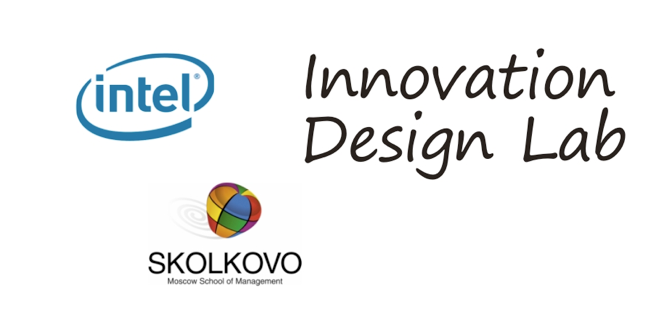
The laboratory will be organized on the almost completed campus of the business school this summer, and in the fall it will accept its first students - students of the Full Time MBA program, who will plunge into the last educational module of their program for two and a half months (in fact, this is a graduation project) . The result of the work of students of the Laboratory should be their own startup.
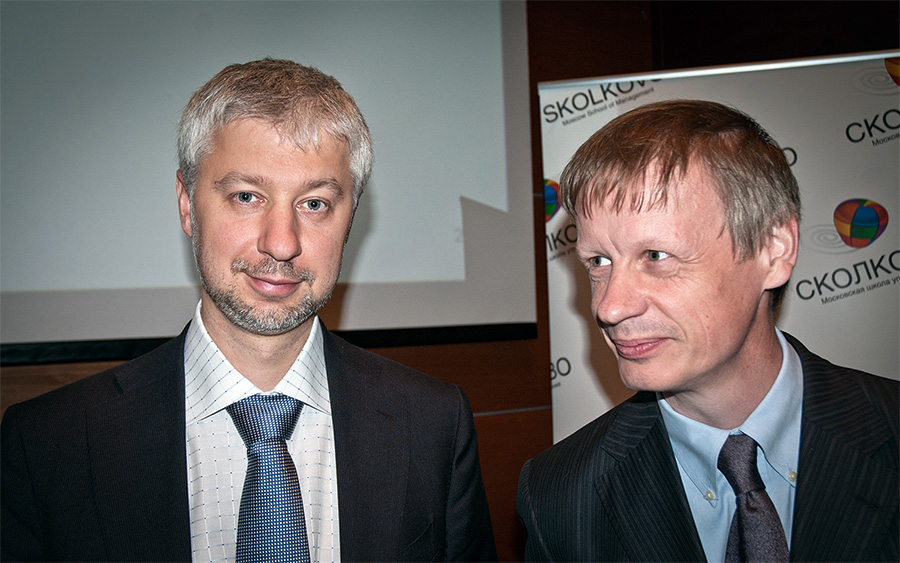
Left: Dmitry Repin, director of start-up projects for Skolkovo, on the right, Kamil Isaev, general director for research and development of Intel in Russia.
')
According to Dmitry Repin, director of start-up projects at Skolkovo and one of the founders of the laboratory, the approach that will be used in the Laboratory is called design thinking , design thinking. This approach is now being actively applied in many universities and schools around the world; The pioneer of the methodology was Stanford University, one of the backbone educational institutions of Silicon Valley in California, with the participation of IDEO , a design company that invented and actively implemented design thinking for two decades.

Design thinking involves the organization of interdisciplinary, mixed teams (entrepreneurs + engineers + designers), which will create startups at the junction of the most diverse technologies. Repin explains that innovations in pure fields, for example, in physics or medicine, are quite difficult for Russia, but it is in mixed areas that you can use the creative potential of our country to create new products, services, processes and organizations in emerging markets. “Partnership with Intel is very cool,” says Dmitry Repin, “because Intel brings with it world leadership in technological expertise.”
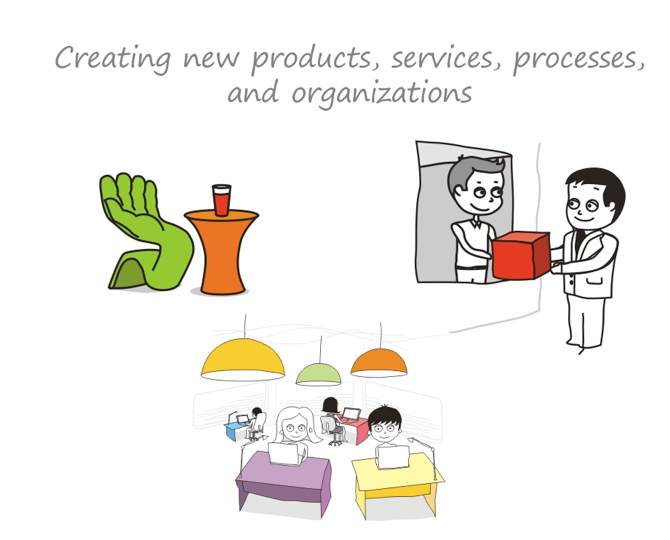
"Skolkovo" is going to attract to the project a variety of organizations with experience in the field of design. Repin said that there is already an agreement with the British Higher School of Design , but there will not be much emphasis on authority - the design thinking approach itself does not involve the use of many years of fundamental experience; for design thinking, context and learning through action are more important.
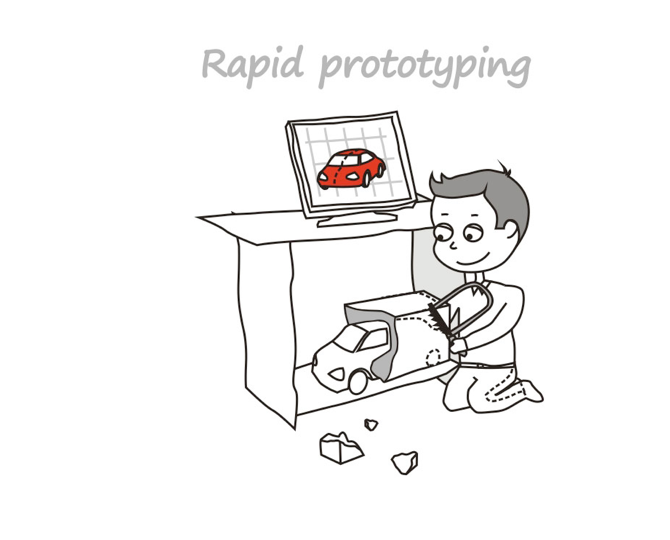
One of the key methods of the opening Lab is a quick prototyping method. The main market with which Skolkovo will work is the market of consumer products and services, so that students of the Laboratory will learn through action, gaining knowledge and skills through the organization of real projects and the creation of an operating business. Intel's global expertise will help Labs create globally competitive projects.
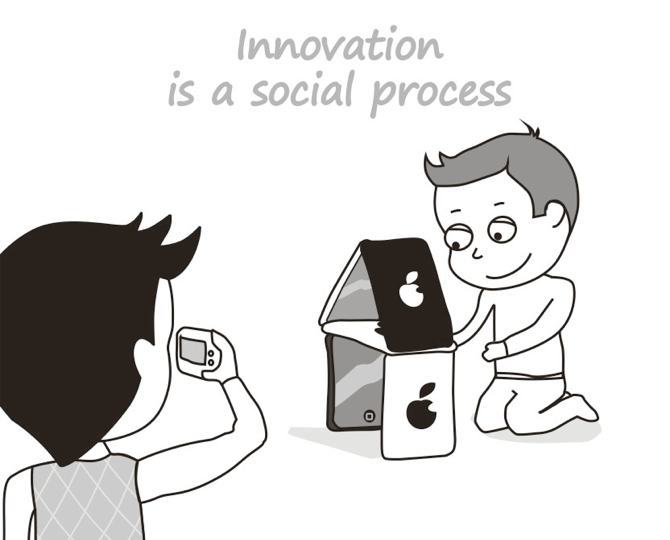
Another key method for the Lab is human-centered design , or human-centered design , another popular concept that Stanford and IDEO promote. "Together with Intel, we will break certain stereotypes," Repin said. “I like the thesis that innovation is a social process; this is a trend that we are seeing more and more lately. Often, it is ordinary users who invent new models of behavior, models of using various devices and technologies on the Internet and in the field of software. We want to capitalize as much as possible on this trend. ” Indeed, design and innovation is a process, largely focused on the emotions of the consumer, and not only on technical tasks that he can solve with the help of a product or service.
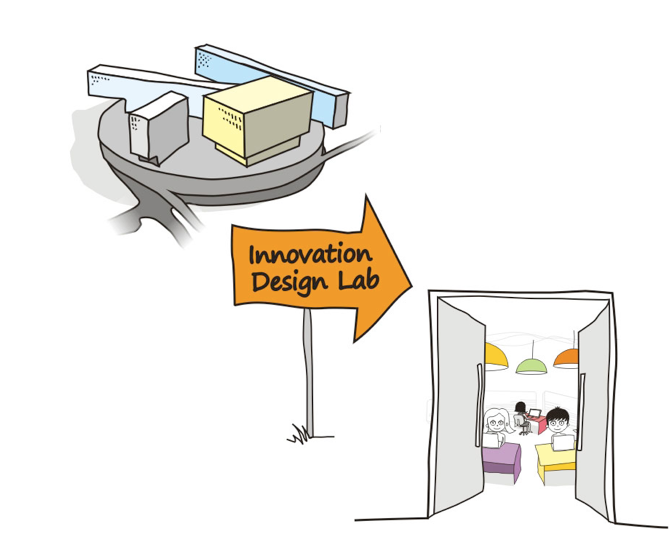
Kamil Isaev, general director for research and development of Intel in Russia, suggested that the best of the Laboratory's projects at some point will be able to receive financing from Intel Capital investment fund. “Intel is a high-tech and innovative company that has been on the market for many years and has been quite successful and has been working in Russia for a long time, therefore our knowledge and experience, our understanding of how an innovative business is being done, will be extremely useful and demanded by Skolkovo students,” said Camille.

The laboratory will be organized on the almost completed campus of the business school this summer, and in the fall it will accept its first students - students of the Full Time MBA program, who will plunge into the last educational module of their program for two and a half months (in fact, this is a graduation project) . The result of the work of students of the Laboratory should be their own startup.

Left: Dmitry Repin, director of start-up projects for Skolkovo, on the right, Kamil Isaev, general director for research and development of Intel in Russia.
')
According to Dmitry Repin, director of start-up projects at Skolkovo and one of the founders of the laboratory, the approach that will be used in the Laboratory is called design thinking , design thinking. This approach is now being actively applied in many universities and schools around the world; The pioneer of the methodology was Stanford University, one of the backbone educational institutions of Silicon Valley in California, with the participation of IDEO , a design company that invented and actively implemented design thinking for two decades.

Design thinking involves the organization of interdisciplinary, mixed teams (entrepreneurs + engineers + designers), which will create startups at the junction of the most diverse technologies. Repin explains that innovations in pure fields, for example, in physics or medicine, are quite difficult for Russia, but it is in mixed areas that you can use the creative potential of our country to create new products, services, processes and organizations in emerging markets. “Partnership with Intel is very cool,” says Dmitry Repin, “because Intel brings with it world leadership in technological expertise.”

"Skolkovo" is going to attract to the project a variety of organizations with experience in the field of design. Repin said that there is already an agreement with the British Higher School of Design , but there will not be much emphasis on authority - the design thinking approach itself does not involve the use of many years of fundamental experience; for design thinking, context and learning through action are more important.

One of the key methods of the opening Lab is a quick prototyping method. The main market with which Skolkovo will work is the market of consumer products and services, so that students of the Laboratory will learn through action, gaining knowledge and skills through the organization of real projects and the creation of an operating business. Intel's global expertise will help Labs create globally competitive projects.

Another key method for the Lab is human-centered design , or human-centered design , another popular concept that Stanford and IDEO promote. "Together with Intel, we will break certain stereotypes," Repin said. “I like the thesis that innovation is a social process; this is a trend that we are seeing more and more lately. Often, it is ordinary users who invent new models of behavior, models of using various devices and technologies on the Internet and in the field of software. We want to capitalize as much as possible on this trend. ” Indeed, design and innovation is a process, largely focused on the emotions of the consumer, and not only on technical tasks that he can solve with the help of a product or service.

Kamil Isaev, general director for research and development of Intel in Russia, suggested that the best of the Laboratory's projects at some point will be able to receive financing from Intel Capital investment fund. “Intel is a high-tech and innovative company that has been on the market for many years and has been quite successful and has been working in Russia for a long time, therefore our knowledge and experience, our understanding of how an innovative business is being done, will be extremely useful and demanded by Skolkovo students,” said Camille.
Source: https://habr.com/ru/post/96878/
All Articles